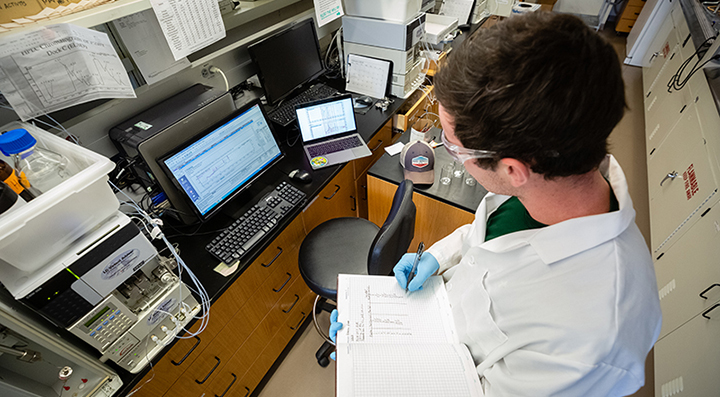Research Integrity & Compliance
Research Integrity & Compliance

promoting safe and ethical research
Research Integrity & Compliance manages multiple programs aimed to promote safe and ethical research at the University of South Florida, and uphold a culture of integrity. The RIC staff administer key research-related assurance and compliance programs required by federal and state agencies and programs for the conduct of research at USF.
Applications for Research Compliance (arc) Portal
The Applications for Research Compliance (ARC) portal is used for the management of protocols in the Animal Care and Use (IACUC), Biosafety (IBC), and Human Subjects Research (IRB) programs, and for disclosures and interest inventories on the Conflict of Interest (COI) program.
To access the ARC portal, you will need to create an account.
| Date & Time | Topic | Presenter |
|---|---|---|
|
February 4, 2026 |
Export Control |
Frederick Pflueger, PhD, ECoP®(ITAR/EAR) |
|
March 11, 2026 |
Data Entry Compliance for Human Subjects Research |
Tatyana Harris, BS, MBA-MHA, DHA |
|
March 26, 2026 |
What to Expect for a BSL-2 Biosafety Inspection |
Debra Howeth, MPH |
|
April 23, 2026 |
Exploring Mouse Pathology |
Giovanni Finesso, CVM |
Responsible Conduct of Reseach Training Series (Spring 2026)
| Date & Time | Topic | Presenter |
|---|---|---|
|
January 27, 2026 |
Mentorship Webinar |
Gopal Thinakaran, PhD |
|
February 12, 2026 |
Fostering Research Integrity Webinar |
Dena-Rose M. Wilson, MBA |
|
April 9, 2026 |
Export Control Webinar |
Frederick Pflueger, ECoP®(ITAR/EAR) |
|
April 15, 2026 |
Best Practices for Text Recycling (AKA "Self-Plagiarism" Seminar |
Cary Moskovitz, Ph.D. |

